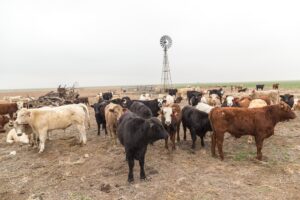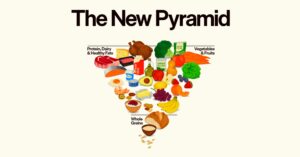Subscribe to Updates
Get the latest agriculture news and updates directly to your inbox.
Author: staff
If Congress passed legislation that allowed for year-round, nationwide access to fuels with 15 percent ethanol blends, corn use in ethanol could increase by 50 percent at full implementation, supporting a higher market price for corn and energy stability for Americans, according to a new analysis released by the National Corn Growers Association. “Congress could address the economic crisis affecting corn growers by passing legislation that would make higher blends of ethanol readily accessible to all Americans,” said NCGA President Jed Bower. “We urge Congress to act now to make that happen.” NCGA has spent months calling on Congress to…
Farmers, ranchers, and other ag stakeholders have dedicated considerable effort in recent decades trying to get more people onto farms and learning about this industry we love. Yet, it’s not realistic to get all people to visit farms and make that connection with their food sources. Despite this barrier, millions of people are getting their first taste of agriculture in a different way — through video games. A wide variety of games such as Farming Simulator, Stardew Valley, and Hay Day have become a surprisingly popular part of the gaming industry. Players get to virtually harvest crops and raise livestock,…
Ever since JCB invented the telehandler in 1977, it has proven to be a handy machine on farms and in the construction industry. More nimble than a forklift and faster than a skid steer, it can be used for a variety of agricultural tasks. “For livestock producers, handling bedding, feed, and hay are big uses — here in Pennsylvania, there is a lot of poultry, and farmers use them to move a lot of litter,” said Gary Hauseman, sales manager for Hoober Equipment in eastern Pennsylvania. “People also use them to move fertilizer, and for general maintenance, like tree trimming…
Antique and vintage tractors are more than machines. They’re emotional pieces of the past that can carry real weight and memories. Whether it’s a tractor that’s been in the family for generations, or one that’s still a workhorse around the farm, these machines definitely have their place. In this eposide, Dave and Andy chat with Ryan Roossinck, writer of “Interesting Iron” for Successful Farming, about current and past antique tractor values and factors influencing today’s market. As a new generation of collectors enters the scene, there’s a shift in popularity from older models like John Deere As and Bs and…
Just before 9:30 a.m. CT, December corn was down 1¢ at $4.12 per bushel. November soybeans were up 2¼¢ at $10.09 per bushel. “Soybeans are showing a little strength to start the week while grains are struggling.” Karl Setzer, partner with Consus Ag Consulting said, “[It is] taking support from a firming cash market and thoughts the U.S. crop may fall short of current estimates, which are already short of projected new crop demand. Soybean harvest is already winding down across the U.S. and basis is firming. Corn basis is also starting to firm as farmers are showing no interest…
1. Soybean, Grain Futures Little Changed Overnight Soybeans and grains were mostly little changed in overnight trading as investors again face uncertainty over the ongoing tariff war between the U.S. and China. President Donald Trump on Friday threatened to hit the Asian nation with 100% tariffs starting next month amid a move by Beijing to restrict rare-earth minerals. The president also said there may longer be a reason to meet with China President Xi Jinping as planned at the end of this month. The two had planned to meet on the sidelines of an economic conference in South Korea in…
By Cami Koons Summerlike temperatures and almost no precipitation over the past week expedited harvest season across Iowa, according to a Monday weather summary from the Iowa Department of Agriculture and Land Stewardship (IDALS). Iowa Secretary of Agriculture Mike Naig said harvest was “in full swing” in the IDALS release. Corn and soybean farmers said their harvests are ahead of schedule because of the weather conditions. According to State Climatologist Justin Glisan, temperatures for the Sept. 29–Oct. 5 reporting period were 12°–16°F above the climatological normal. Glisan also said rainfall was “sparse” over the period, with the weekly average rainfall…
By Cassandra Stephenson Jack Daniel’s is terminating a decades-long program that provided the company’s corn byproduct “slop” to local cattle farmers at low or no cost, allowing the farmers to inexpensively feed their cattle. The “Cow Feeder Program” is to end March 31, as the company transitions to a new partnership with Michigan-based Three Rivers Energy, which will convert the waste into renewable fuel and fertilizer. The change has left farmers in and around south-central Tennessee’s Moore County reeling, searching for ways they might continue to earn a living through raising cattle. Livestock makes up 89% of Moore County’s farm…
By Peter Richards and Seth Meyer U.S. and Brazilian farmers compete directly in global markets for feed, food, fiber, and fuel. Collectively, they supply approximately 58% of the world’s corn and 84% of its soybeans (Trade Data Monitor, 2025). Current discussions on tight producer margins in the United States are putting a strong focus on input costs and use, and the competitiveness of U.S. farmers in a global marketplace. Recent analyses from farmdoc and the USDA have highlighted cost competitiveness of U.S. and Brazilian farmers in soybeans and corn (Colussi et al., 2023, 2024; Valdes, Gillespie and Dohlman, 2023). A closer look at cost data, as…
Problem A conversation isn’t a contract. It’s time to put your farm succession plan in writing. Submitted by email from W.M. My parents own all the assets of the farm: the land, the machinery, and the livestock. Twelve years ago, they invited me back to the farm to work with them. Since then, I’ve assumed most responsibilities for the grain and cow-calf operations. My parents help with labor at peak times. Dad and I do the marketing together, and Mom does the bookkeeping. There is mutual respect and appreciation. Because of my role, my parents have been able to take extended vacations,…









:max_bytes(150000):strip_icc()/A_THL_542_70_AGRI_SUPER_4copy-ae63702f5b7048c7b487c508f64497df.jpg)
:max_bytes(150000):strip_icc()/IMG_4337-eab8264ff1fe411190766f14bfcb1c63.jpg)
:max_bytes(150000):strip_icc()/Markets-8-Soybeans-up-corn-down-3-db6316f9a07e48cc8fa0c5a83551fe7c.jpeg)
:max_bytes(150000):strip_icc()/Updated3BigThings-5-farm-aerial-fall-darkblue-4-bdb974c4f98b479cab875c45db692729.jpeg)
:max_bytes(150000):strip_icc()/IMG_9899-2048x1365-50d7d26a1bd94124b63bad8db3c27f68.jpg)
:max_bytes(150000):strip_icc()/100904390_beef_cattle-5688655fc8bf469493b453816b3075bf.jpg)
:max_bytes(150000):strip_icc()/BryanJorgensesn-HowtoSelectBetterSeedVarieties-R5A_7313-025_corn-0f6e1cf684454c75bd92722e97d50f5e.jpg)
:max_bytes(150000):strip_icc()/ProblemArtOCT25-a6e1fd0823ff4e1f8d8912ef07a53800.jpeg)